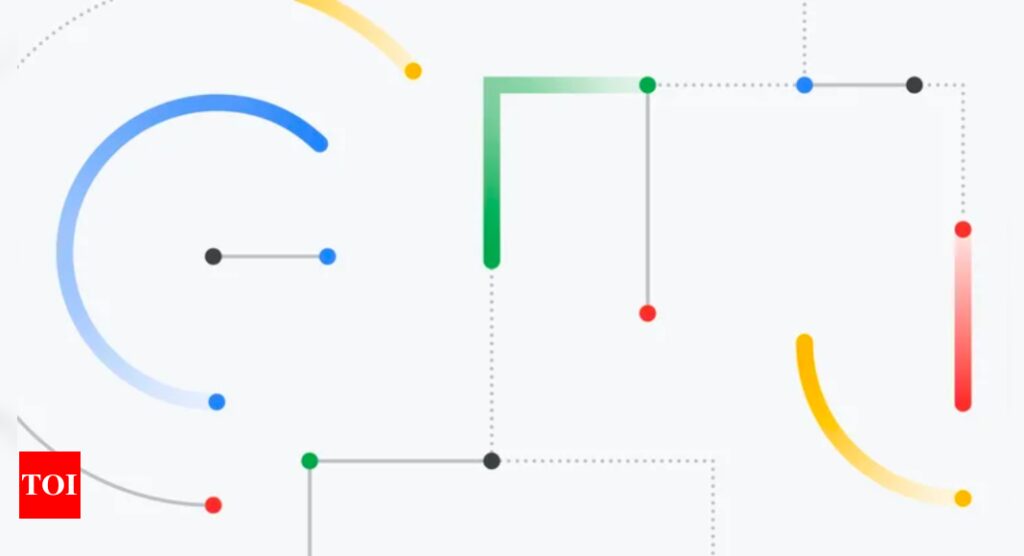[ad_1]
Soon after a report claimed that Google is delaying its plans of launching Gemini, its next-gen model, to next year, the company is reportedly planning a virtual preview of its AI model that is said to take on OpenAI’s GPT-4.
Citing a person with knowledge of the situation, The Information reported that after Google quietly scrapped a set of in-person events to launch Gemini, the company has planned a virtual preview of the new AI as soon as this week.
It suggests that the preview may be restricted to journalists and software developers. The company, for weeks, has been giving private demonstrations of the technology to business partners.
“By giving journalists and software developers a first look at some of the technology’s capabilities, Google could relieve some pressure from investors to prove it can catch up to ChatGPT creator OpenAI,” the report said.
Why Google delayed Gemini’s launch
Google reportedly said that its cloud customers wouldn’t get access to the primary version of Gemini until next year. The company postponed the launch to next year because it is said to be struggling with non-English languages.
Following this issue, Google CEO Sundar Pichai decided to scrap a series of Gemini events, originally scheduled for next week in California, New York and Washington. The planned events would have marked Google’s most important product launch of the year.
Why Gemini launch is important for Google
Google announced Gemini at I/O 2023 and reports suggested that it is capable of giving a tough fight to, or even outperform, OpenAI’s GPT-4. The next-generation AI model of Google is said to have multimodal capabilities, which include generating written content, images, and more based on a text prompt.
Pichai said that Gemini has been created from scratch to be multimodal, and is highly efficient with tool integrations showing “impressive” capabilities that haven’t been seen in previous models.
The report may not come as a surprise because Pichai has been advocating launching a product after it is thoroughly tested. On multiple occasions, Pichai highlighted a sense of caution within Google.
“To me, it was important to not put [out] a more capable model before we can fully make sure we can handle it well,” he said.
Citing a person with knowledge of the situation, The Information reported that after Google quietly scrapped a set of in-person events to launch Gemini, the company has planned a virtual preview of the new AI as soon as this week.
It suggests that the preview may be restricted to journalists and software developers. The company, for weeks, has been giving private demonstrations of the technology to business partners.
“By giving journalists and software developers a first look at some of the technology’s capabilities, Google could relieve some pressure from investors to prove it can catch up to ChatGPT creator OpenAI,” the report said.
Why Google delayed Gemini’s launch
Google reportedly said that its cloud customers wouldn’t get access to the primary version of Gemini until next year. The company postponed the launch to next year because it is said to be struggling with non-English languages.
Following this issue, Google CEO Sundar Pichai decided to scrap a series of Gemini events, originally scheduled for next week in California, New York and Washington. The planned events would have marked Google’s most important product launch of the year.
Why Gemini launch is important for Google
Google announced Gemini at I/O 2023 and reports suggested that it is capable of giving a tough fight to, or even outperform, OpenAI’s GPT-4. The next-generation AI model of Google is said to have multimodal capabilities, which include generating written content, images, and more based on a text prompt.
Pichai said that Gemini has been created from scratch to be multimodal, and is highly efficient with tool integrations showing “impressive” capabilities that haven’t been seen in previous models.
The report may not come as a surprise because Pichai has been advocating launching a product after it is thoroughly tested. On multiple occasions, Pichai highlighted a sense of caution within Google.
“To me, it was important to not put [out] a more capable model before we can fully make sure we can handle it well,” he said.
[ad_2]
Source link











More Stories
Google Maps: Three privacy features coming to Google Maps on Android, iPhones
Most-Downloaded IPhone App: This Chinese app was the most-downloaded iPhone app in the US in 2023
Ukraine’s largest mobile operator goes offline for millions of users after cyber attack